
Uepi Island: A Tropical Paradise in the Solomon Islands
Uepi Island is a small, secluded paradise located in the Solomon Islands. Known for its pristine beaches and crystal-clear waters, this island is a haven for those looking to escape the hustle and bustle of everyday life. The lush, tropical landscape is teeming with exotic flora and fauna, making it a perfect destination for nature lovers. One of the main attractions of Uepi Island is its world-class diving spots. The island is surrounded by coral reefs that are home to a diverse array of marine life, including colorful fish, turtles, and even the occasional shark. Whether you're an experienced diver or a novice, the underwater world of Uepi Island is sure to leave you in awe. For those who prefer to stay on land, there are plenty of activities to keep you busy. You can explore the island's many walking trails, which offer stunning views of the surrounding ocean and jungle. Alternatively, you can relax on one of the island's many secluded beaches, where the only sounds you'll hear are the gentle lapping of waves and the calls of tropical birds. Uepi Island is also a great place to experience the local culture. The island is home to a small, welcoming community that is eager to share their traditions and way of life with visitors. From traditional dance performances to local craft markets, there are plenty of opportunities to immerse yourself in the rich culture of the Solomon Islands.
Local tips in Uepi Island
- Bring plenty of sunscreen and insect repellent, as the island's tropical climate can be harsh on the skin.
- Consider visiting between April and October, when the weather is cooler and drier.
- Book your diving tours in advance, as they can fill up quickly during peak season.
- Bring cash, as there are no ATMs on the island and credit card facilities are limited.
- Respect the local customs and traditions; always ask for permission before taking photos of local residents.
When is the best time to go to Uepi Island?
Iconic landmarks you can’t miss
Solomon Scouts & Coastwatchers Monument
Explore the Solomon Scouts & Coastwatchers Monument, a significant historical landmark in Honiara, celebrating the heroism of World War II.
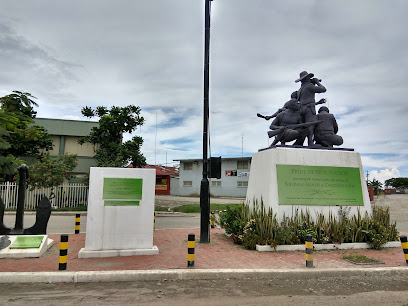
Solomon Islands National Museum
Explore the Solomon Islands National Museum: A gateway to the vibrant history and culture of the Solomon Islands, where stories and artifacts come alive.
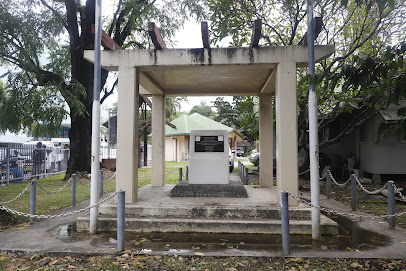
Uepi Island Resort
Discover unparalleled serenity and natural beauty at Uepi Island Resort, a hidden gem in the Solomon Islands perfect for relaxation and adventure.

S.I. Visitors Bureau
Explore the Solomon Islands with insights from the S.I. Visitors Bureau, your gateway to Honiara's rich culture and attractions.
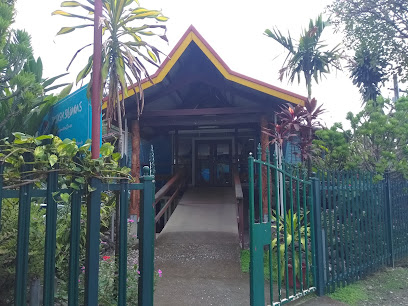
Uepi
Explore Uepi Island, a serene paradise in the Solomon Islands known for pristine beaches, vibrant marine life, and tranquil walking paths amidst stunning natural beauty.
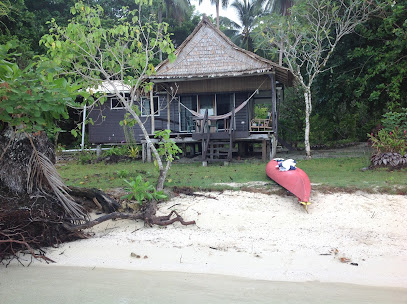
Uipi Island
Experience the pristine beauty and tranquility of Uipi Island, a hidden paradise in the Solomon Islands with stunning beaches and vibrant marine life.

Unmissable attractions to see
Honiara Central Market
Experience the heart of Honiara at the Central Market, where local culture, fresh produce, and unique crafts come together in a vibrant atmosphere.
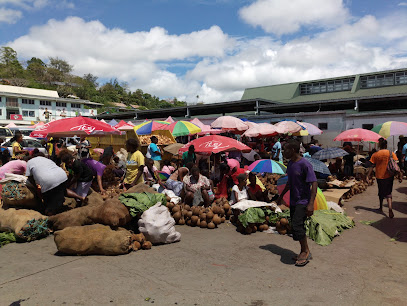
Tetepare
Explore the enchanting Tetepare Island, a hidden paradise in the Solomon Islands, rich in biodiversity and cultural heritage, perfect for nature lovers and adventurers.
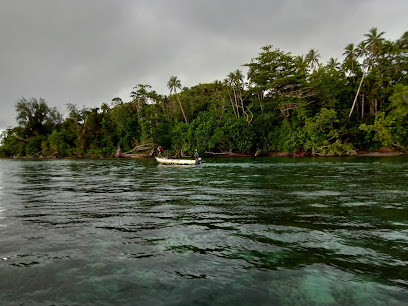
Uepi Island Resort
Discover the serene beauty of Uepi Island Resort – a tropical paradise in the Solomon Islands perfect for relaxation and adventure.

Marovo Lagoon
Discover the serene paradise of Marovo Lagoon, the world's largest double-barrier lagoon, rich in marine biodiversity and cultural heritage.
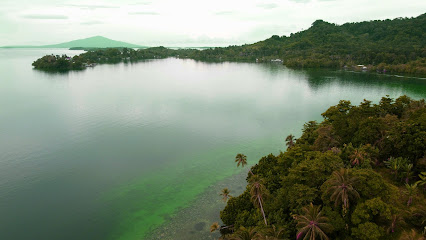
Uepi
Discover the untouched beauty of Uepi, a tranquil island in the Solomon Islands, perfect for adventure seekers and nature lovers.
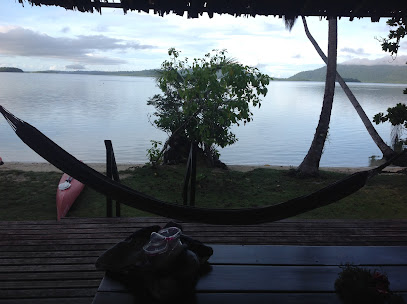
Mbonege beach
Discover the tranquil beauty of Mbonege Beach in Ruaniu, where relaxation meets adventure in the stunning Solomon Islands.
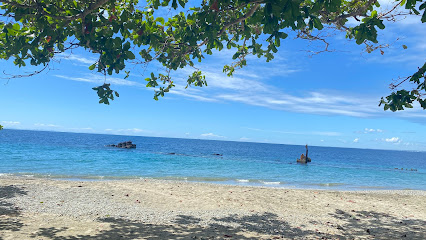
Bunikalo
Explore the untouched paradise of Bunikalo on Nggatokae Island, a hidden gem in the Solomon Islands, where natural beauty meets rich cultural experiences.
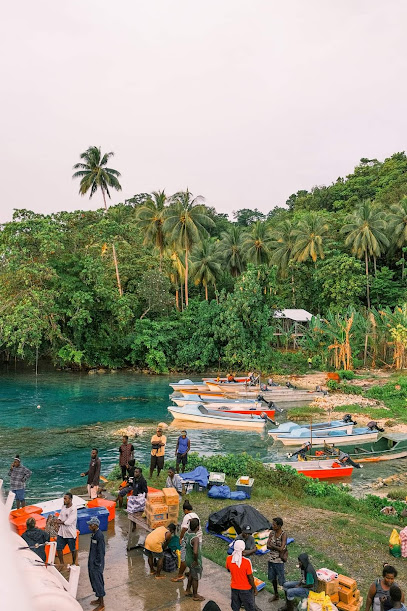
Marovo Island
Explore the unspoiled beauty of Marovo Island, the largest saltwater lagoon in the world, offering adventure and tranquility in the Solomon Islands.
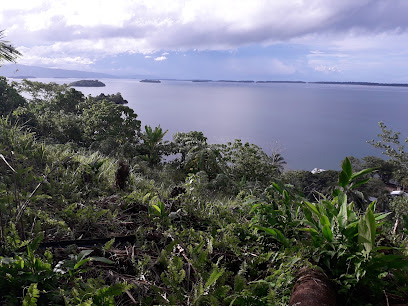
Uipi Island
Experience the untouched beauty of Uipi Island, a serene paradise in the Solomon Islands, perfect for relaxation and marine adventures.

Repi point
Experience stunning vistas and serene nature at Repi Point, a hidden gem in South Rendova, perfect for relaxation and cultural exploration.
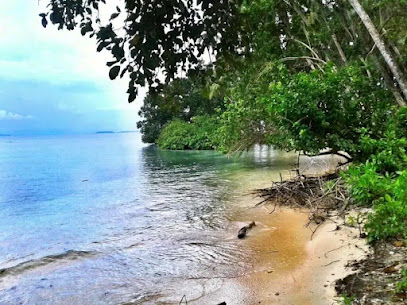
Nusa hope
Explore Nusa Hope in Roviana Lagoon, a serene paradise for snorkeling, relaxation, and cultural discovery in the Solomon Islands.

Essential places to dine
Breakwater Cafe
Discover the culinary delights of Breakwater Cafe in Honiara - where fresh flavors meet stunning views!
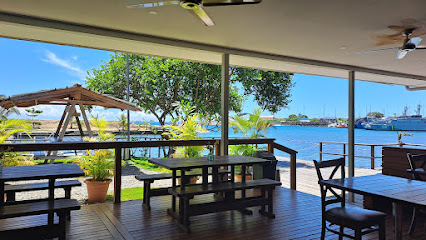
Tenkai Sushi Cafe
Experience the art of sushi at Tenkai Sushi Cafe in Honiara – where every bite tells a story of flavor.
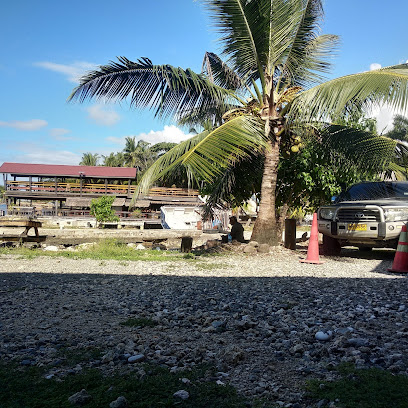
Uepi Island Resort
Experience unparalleled tranquility at Uepi Island Resort—your ultimate tropical escape surrounded by breathtaking natural beauty.

Mambo Juice!
Discover the vibrant flavors at Mambo Juice in Honiara - your go-to café for fresh juices and delicious sandwiches.
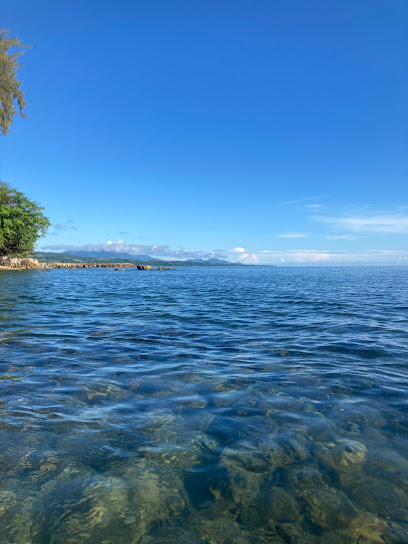
Haydn's Steakhouse
Discover delectable steaks and local dishes at Haydn's Steakhouse in Honiara – a culinary haven for tourists seeking authentic tastes.
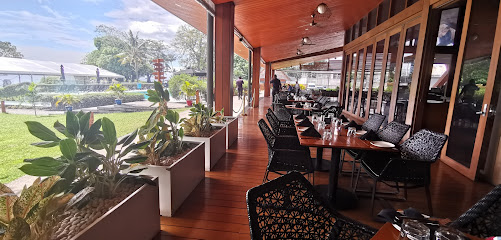
Injoy Restaurant
Discover authentic Chinese cuisine at Injoy Restaurant in Honiara - where every meal is a delightful experience filled with rich flavors.
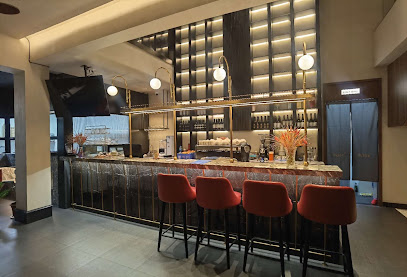
Club Havanah
Experience the essence of France in Honiara at Club Havanah - where exquisite flavors meet warm hospitality.
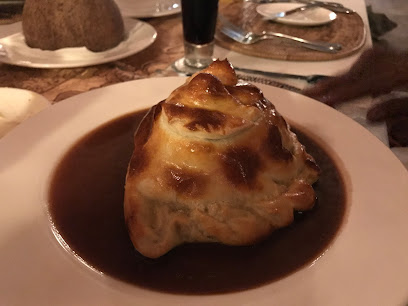
Jina's Restaurant
Experience authentic Chinese cuisine at Jina's Restaurant in Honiara – where every dish tells a story.
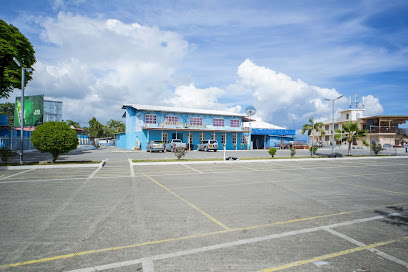
Hakubai
Experience authentic Japanese flavors at Hakubai in Honiara – where fresh ingredients meet traditional culinary art.
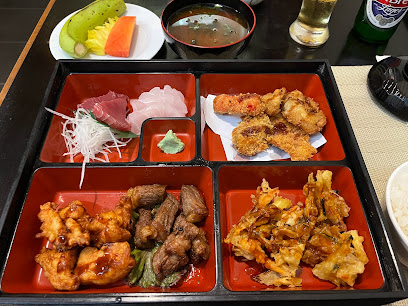
Markets, malls and hidden boutiques
Heritage Park Hotel
Experience the perfect blend of luxury and local culture at Heritage Park Hotel in the heart of Honiara, Solomon Islands.
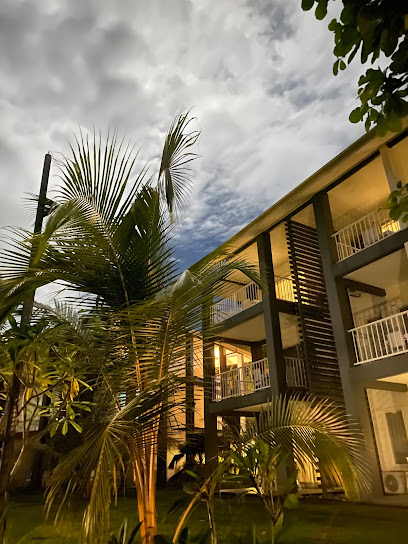
Honiara Central Market
Experience the vibrant culture and local flavors at Honiara Central Market, the heart of Solomon Islands' commerce and community.
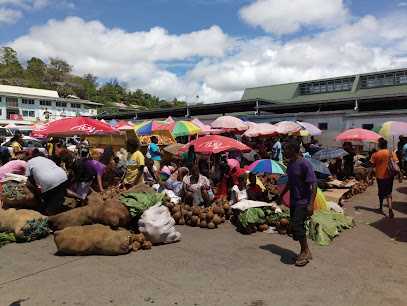
Solomon Kitano Mendana Hotel
Discover comfort and local charm at the Solomon Kitano Mendana Hotel, your ideal retreat in Honiara, Solomon Islands.

Honiara International Airport
Discover the beauty of the Solomon Islands through Honiara International Airport, your gateway to tropical adventures and rich cultural experiences.
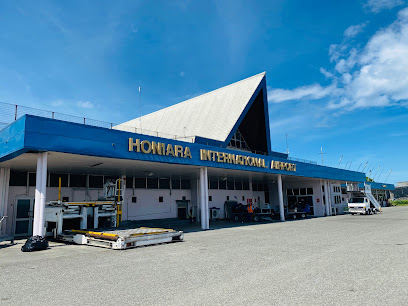
Honiara Hotel
Experience the charm and comfort of Honiara Hotel, your ideal retreat in the heart of the Solomon Islands capital.

Uepi Island Resort
Experience the breathtaking beauty and tranquility of Uepi Island Resort in the Solomon Islands, where adventure and relaxation await.

Bulk Shop
Explore Honiara's Bulk Shop for a rich selection of local groceries and international products to enhance your Solomon Islands adventure.

Tanuli Royal Plains Motel
Discover the comfort and charm of Tanuli Royal Plains Motel, your gateway to exploring Honiara and the stunning Solomon Islands.
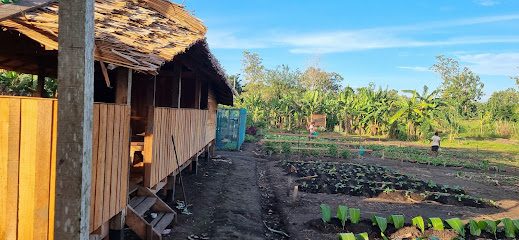
S.I. Visitors Bureau
Explore the Solomon Islands with ease at the S.I. Visitors Bureau in Honiara, your gateway to adventure and local culture.
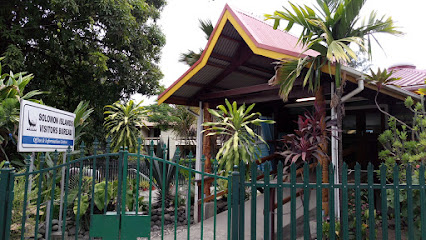
Uepi
Explore Uepi Island in the Solomon Islands: a tranquil paradise for divers, snorkelers, and nature lovers amidst pristine beaches and vibrant marine life.
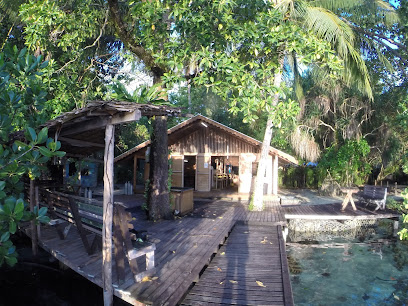
Seghe Airport
Seghe Airport: Your gateway to the enchanting beauty and culture of the Solomon Islands.
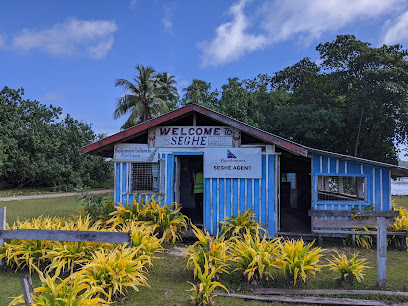
Seghe Budget Accommodation
Discover comfort and value at Seghe Budget Accommodation, the ideal motel for budget-conscious travelers in the beautiful Solomon Islands.
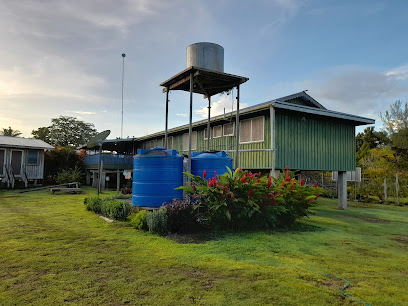
Uipi Island
Experience the untouched beauty of Uipi Island with its stunning beaches, vibrant marine life, and serene tropical landscapes.

OK Trading ltd
Discover the heart of Batuna at OK Trading Ltd, a charming general store offering local products, unique souvenirs, and essential supplies for your island adventure.

in honiara
Discover Honiara, the vibrant capital of the Solomon Islands, where culture, history, and stunning landscapes come together for an unforgettable adventure.

Essential bars & hidden hideouts
Heritage Park Hotel
Discover unmatched comfort and local charm at Heritage Park Hotel in Honiara, your gateway to the stunning Solomon Islands.
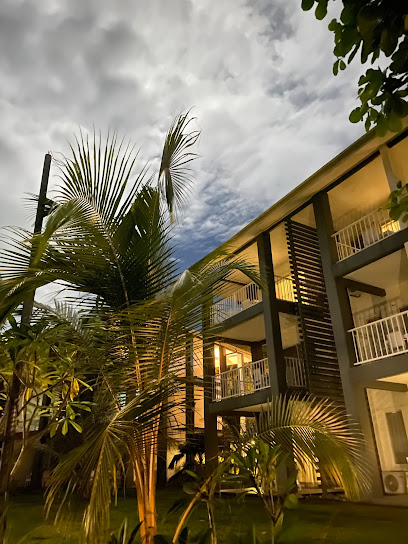
Breakwater Cafe
Discover Breakwater Cafe in Honiara for a remarkable dining experience with stunning views and delicious local cuisine.
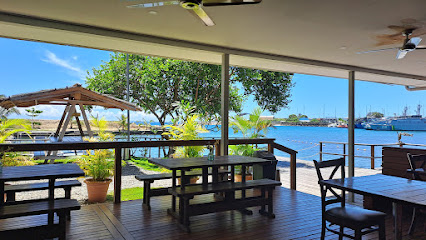
Coral Sea Resort & Casino
Discover the ultimate blend of relaxation and excitement at Coral Sea Resort & Casino, Honiara's premier destination for dining, gaming, and adventures.

Banyan Beach Bar
Discover the vibrant atmosphere of Banyan Beach Bar in Port Vila, where tropical drinks and stunning ocean views create an unforgettable experience.
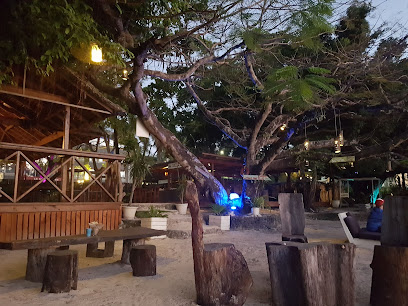
King Solomon Hotel
Discover the charm of Honiara at King Solomon Hotel, your cozy base for exploring the Solomon Islands' vibrant culture and stunning landscapes.

Solomon Kitano Mendana Hotel
Experience the charm and beauty of Honiara at the Solomon Kitano Mendana Hotel, your gateway to the Solomon Islands' rich culture and stunning landscapes.

Pacific Casino Hotel
Discover the perfect blend of relaxation and entertainment at the Pacific Casino Hotel in Honiara, Solomon Islands.

Tenkai Sushi Cafe
Experience authentic Japanese flavors at Tenkai Sushi Cafe in Honiara, where fresh ingredients meet traditional sushi craftsmanship.
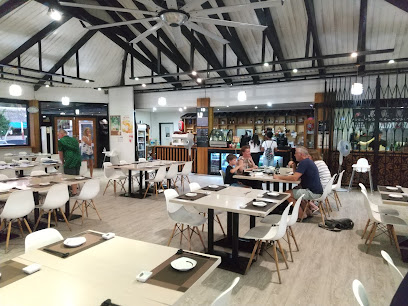
Fatboys Resort
Experience the enchanting beauty and vibrant culture at Fatboys Resort, a serene getaway in Gizo, Solomon Islands, with exceptional dining and adventure.

Uepi Island Resort
Discover the serene beauty and vibrant marine life at Uepi Island Resort, a tropical paradise in the Solomon Islands.

Haydn's Steakhouse
Experience the vibrant culinary culture of Honiara at Haydn's Steakhouse, offering delicious steaks and local specialties in a welcoming atmosphere.
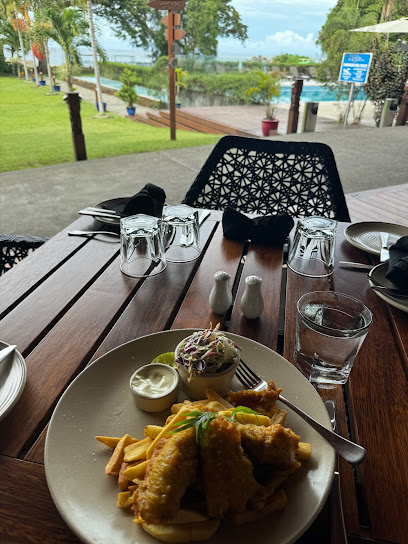
Uepi
Experience the untouched beauty and tranquility of Uepi Island, where adventure meets relaxation amidst stunning marine life.
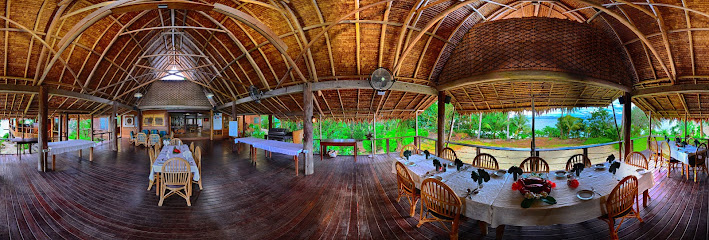
Seghe Airport
Seghe Airport is your entry point to the Solomon Islands, connecting you to adventure, culture, and breathtaking landscapes.
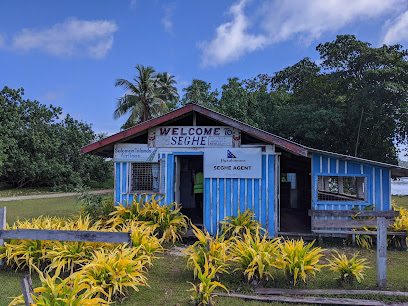
Evis Resort at Nggatirana Island
Experience the serene beauty and luxurious comfort of Evis Resort on Nggatirana Island, a true tropical paradise in the Solomon Islands.

Canoe Bar
Experience the lively atmosphere and delightful drinks at Canoe Bar, a local favorite in Honiara for tourists seeking relaxation and culture.
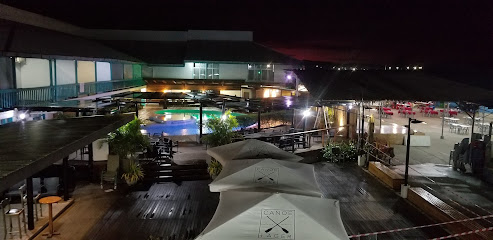
Local Phrases about Uepi Island
-
- HelloAlu
[ah-loo] - GoodbyeKwaheri
[kwa-he-ree] - YesIo
[ee-oh] - NoAi
[ai] - Please/You're welcomeNgaio
[ngai-oh] - Thank youTangio
[tan-gee-oh] - Excuse me/SorryMālō
[mah-loh] - How are you?Oli hau?
[oh-lee how] - Fine. And you?Māsina. Oli?
[mah-see-nah. oh-lee] - Do you speak English?Oli tākē Ingrisi?
[oh-lee tah-keh een-gree-see] - I don't understandTeu hau
[teh-oo how]
- HelloAlu
-
- I'd like to see the menu, pleaseHau fakatū menu, fakafetai
[how fah-kah-too meh-noo, fah-kah-feh-tai] - I don't eat meatTeu fakakai kuka
[teh-oo fah-kah-kai koo-kah] - Cheers!Manuia!
[mah-noo-ee-ah] - I would like to pay, pleaseHau fakataga, fakafetai
[how fah-kah-tah-gah, fah-kah-feh-tai]
- I'd like to see the menu, pleaseHau fakatū menu, fakafetai
-
- Help!Tulou!
[too-loh] - Go away!Fano atu!
[fah-noh ah-too] - Call the Police!Fonua pulisē!
[foh-noo-ah poo-lee-seh] - Call a doctor!Fonua fole!
[foh-noo-ah foh-leh] - I'm lostTeu mafatu
[teh-oo mah-fah-too] - I'm illTeu ma'i
[teh-oo mah-ee]
- Help!Tulou!
-
- I'd like to buy...Hau fakaofa...
[how fah-kah-oh-fah] - I'm just lookingHau fakapupuni
[how fah-kah-poo-poo-nee] - How much is it?Koe hano?
[koh-eh hah-noh] - That's too expensiveKoe hano hāumai
[koh-eh hah-noh hah-oo-mai] - Can you lower the price?Koe hano fau
[koh-eh hah-noh fow]
- I'd like to buy...Hau fakaofa...
-
- What time is it?Koe hano aha?
[koh-eh hah-noh ah-hah] - It's one o'clockKoe hano taha
[koh-eh hah-noh tah-hah] - Half past (10)Ko e ono
[koh-eh oh-noh] - MorningTāpū
[tah-poo] - AfternoonAfiafi
[ah-fee-ah-fee] - EveningMalamalama
[mah-lah-mah-lah-mah] - YesterdayNeinei
[nay-nay] - TodayNoho
[noh-hoh] - TomorrowApolima
[ah-poh-lee-mah] - 1Taha
[tah-hah] - 2Lua
[loo-ah] - 3Tolu
[toh-loo] - 4Fa
[fah] - 5Lima
[lee-mah] - 6Ono
[oh-noh] - 7Fitu
[fee-too] - 8Valu
[vah-loo] - 9Hiva
[hee-vah] - 10Sefulu
[seh-foo-loo]
- What time is it?Koe hano aha?
-
- Where's a/the...?Koe fekua...?
[koh-eh feh-koo-ah] - What's the address?Koe hano o le tuatusi?
[koh-eh hah-noh oh leh too-ah-too-see] - Can you show me (on the map)?Koe hano tonu i le faʻamāpī?
[koh-eh hah-noh toh-noo ee leh fah-ah-mah-pee] - When's the next (bus)?Ko e aso e toe?
[koh-eh ah-soh eh toh-eh] - A ticket (to ....)Koe hano falevale (ki ....)
[koh-eh hah-noh fah-leh-vah-leh kee]
- Where's a/the...?Koe fekua...?
History of Uepi Island
-
Uepi Island is part of the Solomon Islands, located in the Marovo Lagoon, which is the largest saltwater lagoon in the world. The island is renowned for its pristine natural beauty, vibrant marine life, and rich cultural heritage.
-
The history of Uepi Island is deeply rooted in the traditions and customs of its indigenous inhabitants, the Marovo people. These early settlers were expert navigators and fishermen who lived in harmony with the lagoon's rich marine environment. Their culture, characterized by intricate wood carvings, traditional dances, and a profound respect for nature, continues to influence life on the island today.
-
In the 19th century, European explorers and missionaries began arriving in the Solomon Islands. The London Missionary Society played a significant role in this period, introducing Christianity and Western education to the local communities. While this brought about significant changes, the Marovo people managed to retain much of their traditional culture alongside new influences.
-
During World War II, the Solomon Islands, including Uepi, were the scene of intense military activity. The Battle of Guadalcanal, one of the most crucial campaigns in the Pacific theater, took place nearby. While Uepi itself didn’t witness major battles, the war left an indelible mark on the region, with remnants of military equipment and sunken ships still visible today.
-
After World War II, the Solomon Islands began to rebuild and develop. Uepi Island saw a gradual increase in tourism, attracted by its stunning natural scenery and rich biodiversity. The establishment of eco-resorts and dive centers in the late 20th century marked a new era of sustainable tourism, promoting conservation efforts while providing economic benefits to the local communities.
-
In recent years, there has been a strong focus on preserving the unique cultural heritage of Uepi Island. Efforts include promoting traditional crafts, protecting sacred sites, and revitalizing indigenous languages. However, the island faces modern challenges such as climate change, which threatens its delicate ecosystem and way of life.
-
Today, Uepi Island is a blend of ancient traditions and modern influences. It is a popular destination for eco-tourists and divers, who come to experience its unspoiled beauty and vibrant underwater world. The island continues to celebrate its rich cultural history, offering visitors a chance to connect with the Marovo people's enduring legacy.
Uepi Island Essentials
-
Uepi Island is located in the Western Province of the Solomon Islands. The nearest international airport is Honiara International Airport (HIR) on Guadalcanal Island. From Honiara, you can take a domestic flight to Seghe Airport, which is the closest airstrip to Uepi Island. The flight usually takes around 1 hour. Upon arrival at Seghe, a boat transfer will take you to Uepi Island, a journey that typically lasts about 30 to 45 minutes.
-
Once on Uepi Island, transportation is primarily by foot, as the island is small and easily walkable. For excursions to nearby islands and dive sites, boats are the primary mode of transport. The resort on Uepi Island often organizes these boat trips. There are no cars or public transport systems on the island itself.
-
The official currency of the Solomon Islands is the Solomon Islands Dollar (SBD). Credit cards are accepted at the Uepi Island resort, but it is advisable to carry some cash, especially for tips and small purchases. There are no ATMs on Uepi Island, so withdraw enough cash in Honiara before traveling to the island.
-
Uepi Island is generally very safe for tourists. The island is private and primarily hosts guests of the resort. However, it's always wise to take standard travel precautions: secure your valuables, avoid walking alone at night in unfamiliar areas, and be cautious when swimming or diving. There are no specific high-crime areas on the island.
-
In case of emergency, inform the resort staff immediately, as they are trained to handle various situations. There is a basic medical facility on the island, but for serious medical emergencies, evacuation to a hospital in Honiara may be necessary. It is recommended to have comprehensive travel insurance that includes medical evacuation. The emergency contact number in the Solomon Islands is 911.
-
Fashion: Do dress casually and comfortably, but avoid overly revealing clothing out of respect for local customs. Religion: Do be respectful of local customs and practices. If visiting nearby villages, dress modestly and ask for permission before taking photographs. Public Transport: There is no public transport on Uepi Island. Boat trips organized by the resort are the main mode of travel. Greetings: Do greet locals with a friendly 'hello' or 'good day.' A handshake is also appropriate. Eating & Drinking: Do try the local cuisine offered at the resort. Don't waste food, as resources are limited on the island.
-
To experience Uepi Island like a local, engage with the resort staff and learn about their way of life. Participate in guided tours and excursions to nearby villages and islands. Try local dishes and seafood, and take part in cultural activities offered by the resort. Practice sustainable tourism by respecting the environment and local customs.
Nearby Cities to Uepi Island
-
Things To Do in Yandina
-
Things To Do in Honiara
-
Things To Do in Tulagi
-
Things To Do in Taro Island
-
Things To Do in Auki
-
Things To Do in Arawa
-
Things To Do in Kokopo
-
Things To Do in Rabaul
-
Things To Do in Alotau
-
Things To Do in Lata
-
Things To Do in Kimbe
-
Things To Do in Kavieng
-
Things To Do in Port Moresby
-
Things To Do in Sola
-
Things To Do in Lae



